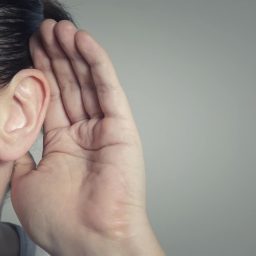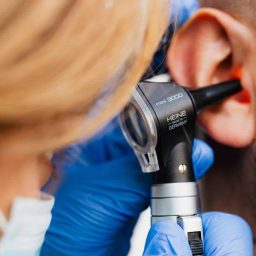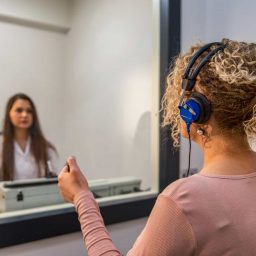Why Should You Take a Loved One to Your Audiologist Appointment?

Medical treatment is a very personal experience. In a lot of cases, it’s unlikely that you would bring a friend or partner to your doctor’s appointments, but in the case of hearing treatment, audiologists recommend bringing a companion. Bringing a companion to your audiology appointment can help you in your hearing treatment journey and potentially strengthen…
EOENT Welcomes Dr. P. Cody Buchanan

Dr. P. Cody Buchanan is our newest provider at Eastern Oklahoma Ear, Nose and Throat. He specializes in otology, neurotology, pediatric and adult hearing and balance disorders, cochlear implantation and cholesteatoma. He strives to provide individualized and compassionate care to his patients and their families. Dr. Buchanan earned his osteopathic medicine degree from Oklahoma State…
How Untreated Hearing Loss Can Affect Your Daily Life

Untreated hearing loss can affect your daily life in numerous ways. According to one review, “Several studies have shown that uncorrected hearing loss gives rise to poorer quality of life, related to isolation, reduced social activity, and a feeling of being excluded, leading to an increased prevalence of symptoms of depression.” In this post, we…
How Treating Hearing Loss Can Help with Anxiety
Do you have hearing loss and experience anxiety? If so, know that you’re far from alone. In fact, according to one 2017 study, “The problem of anxiety and depression in patients with moderate and severe sudden sensorineural hearing loss is relatively prominent, and the symptoms of anxiety and depression are obviously affected by the symptoms and other diseases……
Don’t Overlook These Signs of Hearing Loss

Aging is one of the most common causes of hearing loss. Most cases of age-related hearing loss come on gradually, and many people can easily ignore some of the early signs. However, the earlier you can get tested and treated with hearing aids, the better it is for your hearing health. Here are some signs…
Untreated Hearing Loss May Leave You More Vulnerable to Falls

Leaving your hearing loss untreated can lead to a slew of other health issues, including increasing your risk of falls. In fact, research has found that even mild hearing loss can triple a person’s risk of an accidental fall. Not only that but this risk increases by 140% for every additional 10 decibels of hearing…
It’s Important To Seek Treatment For Sudden Hearing Loss Quickly

Most hearing loss comes on gradually due to factors like aging, prolonged exposure to loud noise, certain medical conditions or some combination of those. However, some people experience hearing loss in one or both ears that comes on rapidly. This is known as sudden hearing loss, and it’s important that you seek medical treatment right…
Is There a Link Between Hearing Loss and Chronic Diseases?

Many things can increase your risk of hearing loss, including exposure to loud noise, certain genetic conditions and aging. Additionally, there appears to be a link between hearing loss and several common chronic diseases. Chronic Kidney Disease A 2010 study published in American Journal of Kidney Diseases found that moderate CKD was associated with a…
Benefits of a Hearing Test

According to a study published in the journal Health Technology Assessment, “A simple systematic screen, using an audiometric screening instrument, has been shown to be acceptable to people in the age range 55-74 years, is likely to provide substantial benefit and may be cost-effective to those in that target group.” It’s important to note, however,…
Effects of Untreated Hearing Loss on Senior Citizens

According to a study published in the journal Clinical Interventions in Aging, “Especially in the elderly, hearing loss can impair the exchange of information, thus significantly impacting everyday life, causing loneliness, isolation, dependence, and frustration, as well as communication disorders.” Below we dive into more effects of untreated hearing loss on senior citizens at LIFE…